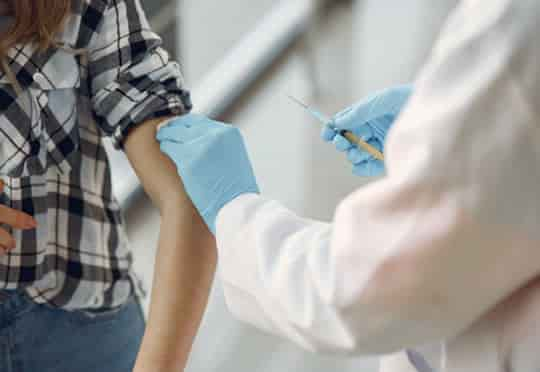Coronavirus vaccine goes to phase 3 trial enrolling 30,000 people in the US.
Early tests of the Oxford coronavirus vaccine show that it creates a powerful immune response through antibodies and T-cells and appears safe.
The vaccine candidate causes the common cold in chimpanzees but appears to be harmless to humans.
The researchers engineered a modified version to resemble the surface of SARS-CoV-2, which has a ‘spike’ protein.
The coronavirus spikes attach themselves to human cells, then the virus enters the cells and starts to reproduce more viruses.
The resemblance of the vaccine to the coronavirus will prepare our immune system to fight it off efficiently.
The vaccine could be very effective since it causes both antibodies and T-cells to respond.
The phase two trial shows that the T-cell response occurred in 14 days and the antibody response was within 28 days of vaccination.
Antibodies and T-cells are both crucial parts of our immune defence.
The antibody’s job is to offset the coronavirus by sticking to them and stopping them from infecting cells.
T-cells are a type of white blood cell which are able to kill infected cells with the SARS-CoV-2 virus.
Professor Andrew Pollard, study’s co-author, said:
“We’re really pleased with the results published today as we’re seeing both neutralising antibodies and T-cells.
They’re extremely promising and we believe the type of response that may be associated with protection.
But the key question everyone wants to know is does the vaccine work, does it offer protection… and we’re in a waiting game.”
Phase I/II trial involved 1,077 healthy adult volunteers who received the vaccine candidate developed by Oxford University and licensed to AstraZeneca.
About 90 percent of participants produced neutralising antibodies after one injection and only 10 subjects needed a second dose to develop neutralising activity against SARS-CoV-2 infection.
Subjects who took the vaccine didn’t suffer from any serious side-effects but 70 percent of them had either headache or fever.
Professor Pollard said:
“We saw the strongest immune response in the 10 participants who received two doses of the vaccine, indicating that this might be a good strategy for vaccination.”
The aim of vaccination is either to stop people getting sick or at least minimise coronavirus symptoms.
Phase 3 trials will confirm if the vaccine can definitely protect people against COVID-19.
At this stage 10,000 people will take part in the UK, 30,000 in the US, 5,000 in Brazil, and 2,000 in South Africa to make sure it is a safe and effective vaccine.
Mr Mene Pangalos from AstraZeneca, said:
“We are encouraged by the Phase I/II interim data showing AZD1222 was capable of generating a rapid antibody and T-cell response against SARS-CoV-2.
While there is more work to be done, today’s data increases our confidence that the vaccine will work and allows us to continue our plans to manufacture the vaccine at scale for broad and equitable access around the world.”
The study was published in The Lancet (Folegatti et al., 2020).

